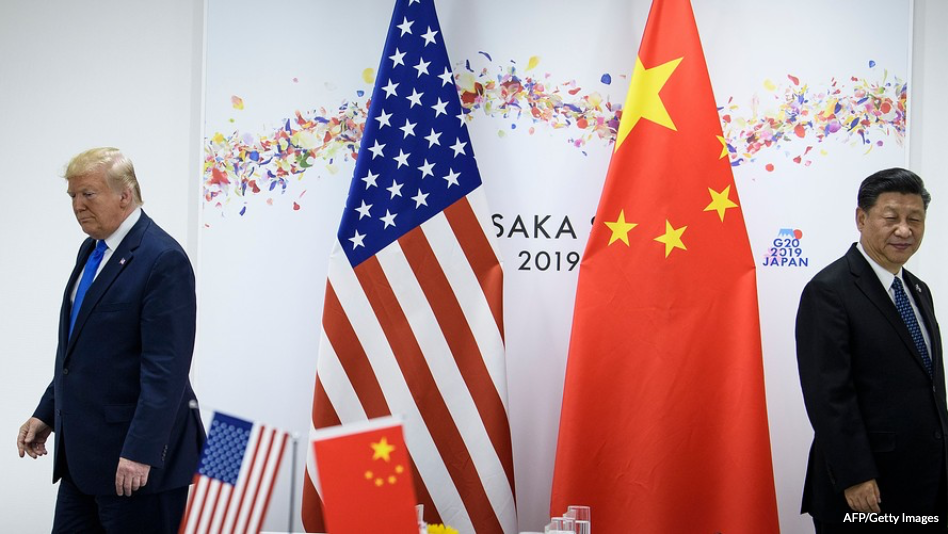US-China Trade War: Time to change gears?
August 16, 2019

“Things are going very well with China” tweeted Trump after imposing new tariffs on China imports. The stock market crashed on the news. Easy fix: Trump backed off the tariffs on Tuesday and the stocks rebounded. But then they crashed again, worse than before.
I wrote the previous blog in response to clients and readers who are riveted to the news and gossip on the China trade war because it directly impacts their livelihood. Most businesses are affected by this, one way or the other. And most want, or at least hope for, stability and predictability. They want this trade war to end and are looking for signs that it will – soon.
They will be disappointed.
As an observer, 3 things are clear to me about the US-China trade war: (1) Starting it was justified; (2) an agreement can be reached, and yet (3) there is no end in sight.
Let’s be clear about tariffs and their purposes. They are not a new tax designed to enrich the treasury. They are a bargaining chip to secure a better, fairer trade arrangement with China.
Tariffs can do huge damage, they are very persuasive and they put the US in the driving seat of the China trade negotiations. So what are we waiting for?
Starting a war is easy. Concluding it is much harder. Trump’s avowed frustration with China’s slow progress is because he is having difficulty finishing what he started. In a standoff between the two most powerful countries in the world, it is the realization of his own incompetence that irritates him.
Sure, China is a tough negotiator. Chinese thrive in subtleties, grey areas, innuendos. They are avid students of history, they take the long view. Nothing new here. We have tough, sophisticated negotiators of our own.
Of course, we can blame the Chinese. That is easy to do and politically convenient. But it is also cheap, weak and irrelevant. The Chinese want to end this as much as we do. It is up to us to get it done.
Erratic behavior is the big problem. Clarity of purpose, long term vision are also missing. Trump thinks he knows how to handle the Chinese better than Lighthizer and Mnuchin. But he flip-flops. He does one thing today, changes his mind the next and acts as if it is normal. This does not build the trust needed to close a deal.
For the always-welcome humorous perspective, read “Last Exit before a Cold War?” (Holman Jenkins). It presents a secret letter from Xi Jinping to Trump in which he proposes to by-pass the negotiators and end the trade war with a compromise acceptable to both of them. The tone is callous, but practical. The article is funny, preposterous, irreverent – and yet eerily plausible. Any deal can be made if one is willing to compromise.
Back in the real world we know a deal was basically in place in March. [See blog US-China Trade War – 4. Meanings and Positions and US-China Trade War – 6. Negotiating Once More.] We don’t know why it is taking so long to finalize. Is it because we want a perfect, no-compromise deal? Is it because our idea of a perfect deal keeps changing?
The longer the US-China trade war lasts, the heavier the burden on the silent majority of US businesses and consumers who pay for it. With his latest salvo, two things stand out: Trump is running out of ammo and we are running out of time. The full economic impact of the trade war is gathering strength and momentum. Most of us know this, we can see it coming. The dominant mood in the markets today is anxiety, and for good reasons.
One example: On Wednesday, for the fist time in 12 years, the US yield curve inverted: a strong sign that a recession is coming.
Moving on, let’s be practical; let’s not pretend tariffs are the only arguments we have. Let’s not expect China to behave like Mexico.
“Insanity is doing the same thing over and over and expecting different results.”
Albert Einstein
Things are not going well. Not for us, not for China, not for the world. Since the US team is in charge, it should accept responsibility for the process and for the outcome. It is time to be flexible, change gears and do things differently.
◊◊◊◊◊
